サウスチャイナモーニングポスト(South China Morning Post)北京支局長ジャスパー・ベッカー(Jasper Becker)氏が4月29日に解雇された件で「第二の林和立(Willy Wo-Lap Lam)事件!? 」と一部で騒がれておりました。理由は「(林氏の後任)中国編集長と対立」「チベット行きを拒否され抗議したため」などとイロイロ書かれていたんですが、当のご本人が書いた記事が昨日4日付のWashington Postに掲載されました。今、蘋果見て気が付いた。
Why I Was Fired in Hong Kong
(Washington Post 2002.05.04)
http://www.washingtonpost.com/wp-dyn/articles/A30593-2002May4.html
解雇に関する記事
■Washington Post(要登録)
Reporter Fired After Accusing Hong Kong Paper of Self-Censorship
(2002.04.30)
http://www.washingtonpost.com/wp-dyn/articles/A8470-2002Apr30.html
Hong Kong Paper Fires Critical Journalist
(2002.05.01)
http://www.washingtonpost.com/wp-dyn/articles/A11937-2002Apr30.html
■CNN
Row over China reporter sacking
(2002.04.30 03:08EDT)
http://www.cnn.com/2002/WORLD/asiapcf/east/04/30/hk.reporter/index.html
Why I Was Fired in Hong Kong
(Washington Post 2002.05.04)
http://www.washingtonpost.com/wp-dyn/articles/A30593-2002May4.html
解雇に関する記事
■Washington Post(要登録)
Reporter Fired After Accusing Hong Kong Paper of Self-Censorship
(2002.04.30)
http://www.washingtonpost.com/wp-dyn/articles/A8470-2002Apr30.html
Hong Kong Paper Fires Critical Journalist
(2002.05.01)
http://www.washingtonpost.com/wp-dyn/articles/A11937-2002Apr30.html
■CNN
Row over China reporter sacking
(2002.04.30 03:08EDT)
http://www.cnn.com/2002/WORLD/asiapcf/east/04/30/hk.reporter/index.html










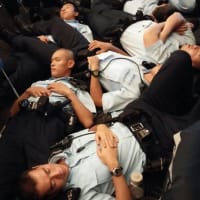
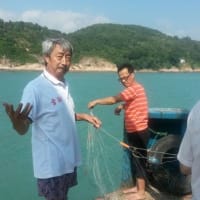

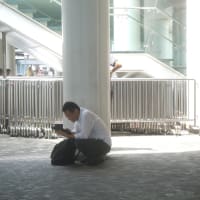
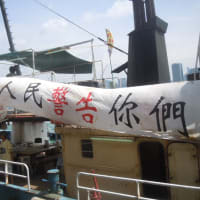
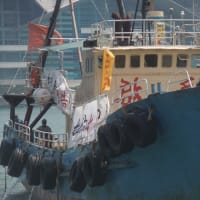
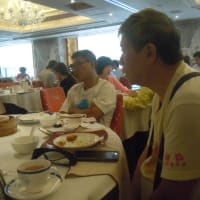
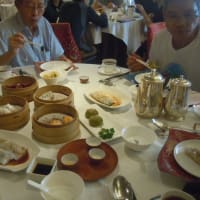
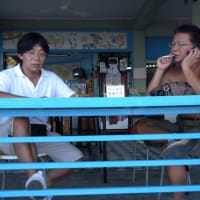
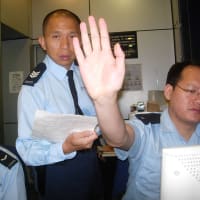
(Washington Post 2002.05.04)
By Jasper Becker
Saturday, May 4, 2002; Page A21
After the handover of Hong Kong to China in 1997, one of the toughest challenges facing the Chinese Communist Party was to gain control over the freewheeling media there. For more than a century, Hong Kong had been a refuge for dissenting voices in the Chinese world and the prime marketplace for trading rumors and leaks.
The Chinese-language press was the first target, and the process of subduing its boisterous members began even before 1997. Critical voices were targeted, often in creative ways. Some were flattered and won over, others bribed or threatened. Some journalists were fed stories to bring them into a collaborative and dependent relationship. Others were helped with favors; in one case Chinese officials paid the debts of a reporter's mistress.
With the South China Morning Post, the problem was more difficult. It is in English and therefore widely read in the rest of the world so it serves as a barometer of Hong Kong's freedoms, which are supposed to be preserved for 50 years under the "one country, two systems" mantra.
Thus the process of bringing it around to take a pro-Beijing stance is being carried out in a step-by-step way to avoid creating alarm. First, it was acquired by a Chinese tycoon, Robert Kuok, who has big investments in China.
Then the independent-minded editor, Jonathan Fenby, was replaced, followed by the features editor, Charles Anderson, and then Willy Lam, the China editor and prominent China-watcher, who was replaced by an editor trained at the mainland's China Daily. Other dismissals followed.
Next on the list were the paper's news bureaus on the mainland. Here, the key event was to transfer them from the supervision of the foreign ministry to the Hong Kong and Macao Affairs Office, which is responsible to the central government for supervising Hong Kong's affairs. This office said that the paper was not to have westerners reporting on China -- only ethnic Chinese. Chinese originally from Hong Kong or the mainland are generally easier to intimidate, whatever passports they hold.
At first the paper was told the existing six correspondents could not be accredited at all. Then authorities said we could be accredited provisionally. But the paper began to take steps to make life more uncomfortable for us, including withholding money to run the bureau and curtailing normal reporting trips. Even a rare invitation to visit Tibet was blocked by the editor, Thomas Abraham, on the grounds that he could see no news value in it.
On the editorial side, reporters began almost instinctively to avoid reporting on the activities of those opposing the central government. Direct reporting on Tibet, Falun Gong or worker unrest was left more and more to the news agencies. Copy was edited to make it more and more bland. Anything personal about China's leaders was taken out.
Such things as a description of Jiang Zemin's unimpressive performance at a joint press conference with President Bush earlier this year, or the impression made by Premier Zhu Rongji at his press conference closing the annual National People's Congress, were edited out.
The China editor urged us to attend more official briefings and stick closely to what officials said. Stories that made the front pages elsewhere, such as Falun Gong's brief takeover of the cable television network of Changchun in March, were buried in our paper. The preference was always to highlight the official reaction to such bad news rather than to investigate it.
The process was by no means complete, however, and many resisted it; I still managed to get my views printed on the editorial pages. But the next stage became obvious when the China editor began to try exerting his control over the rest of the paper.
When I went to express my concerns to the editor, and my fears that the change was becoming all too obvious to readers, I was quickly sacked for "insubordination" and refusing to buckle under to the China editor.
The remolding of the South China Morning Post mirrors what is happening throughout Hong Kong. Chief Executive Tung Cheehwa has started his second term in office apparently determined to give further proof of his loyalty to Beijing. He is tightening his control over the civil service and taking other steps to lessen Hong Kong's autonomy.
For the press, a new anti-subversion law is soon to be passed. It will allow for broad interpretations of what constitute acts endangering state security, and could include news reporting that supports Tibetan or Taiwan independence, or is critical of Beijing's handling of the Falun Gong movement.
The vision of "one country, two systems" becomes ever dimmer.
---
The writer is former Beijing bureau chief of the South China Morning Post.